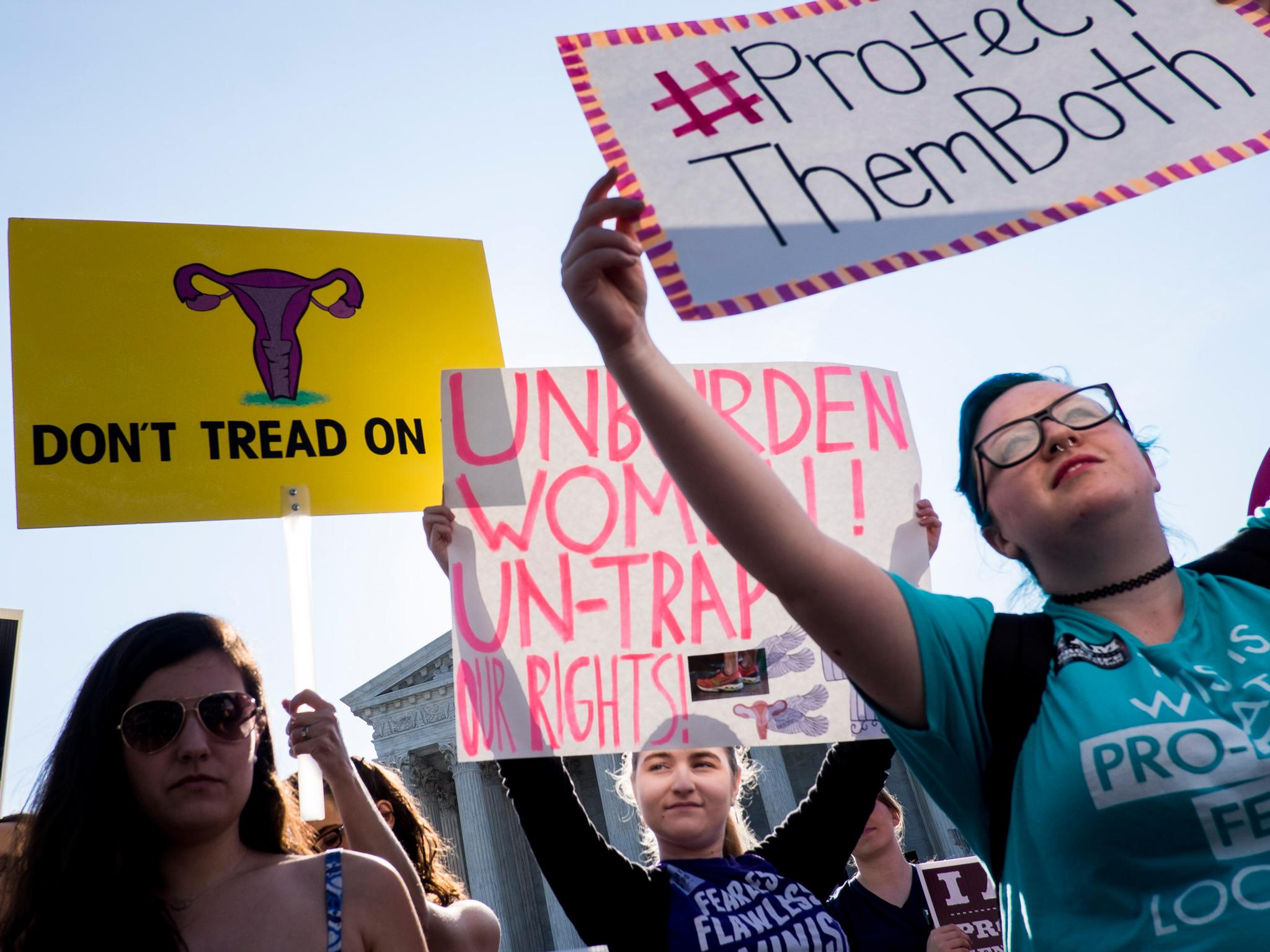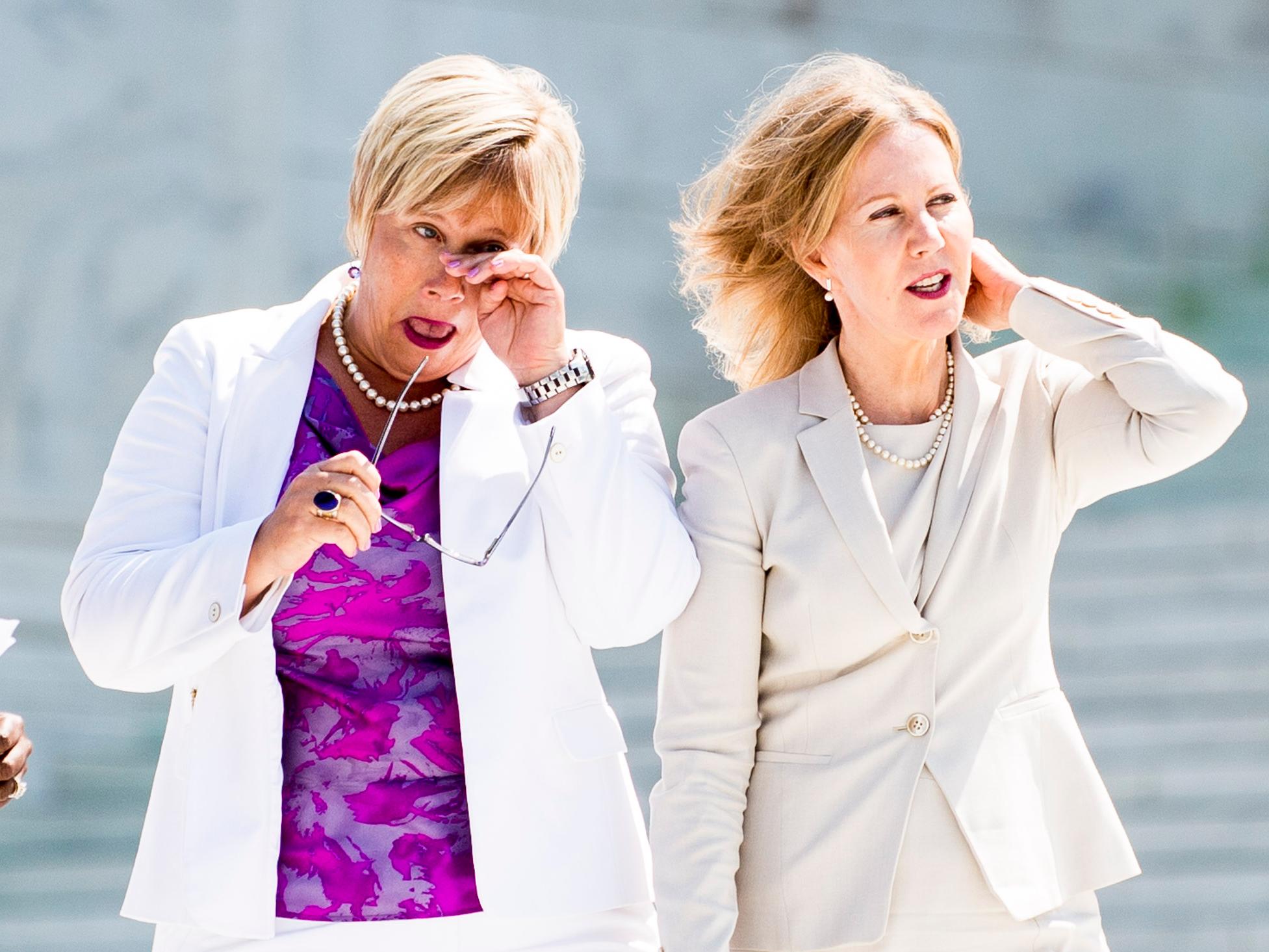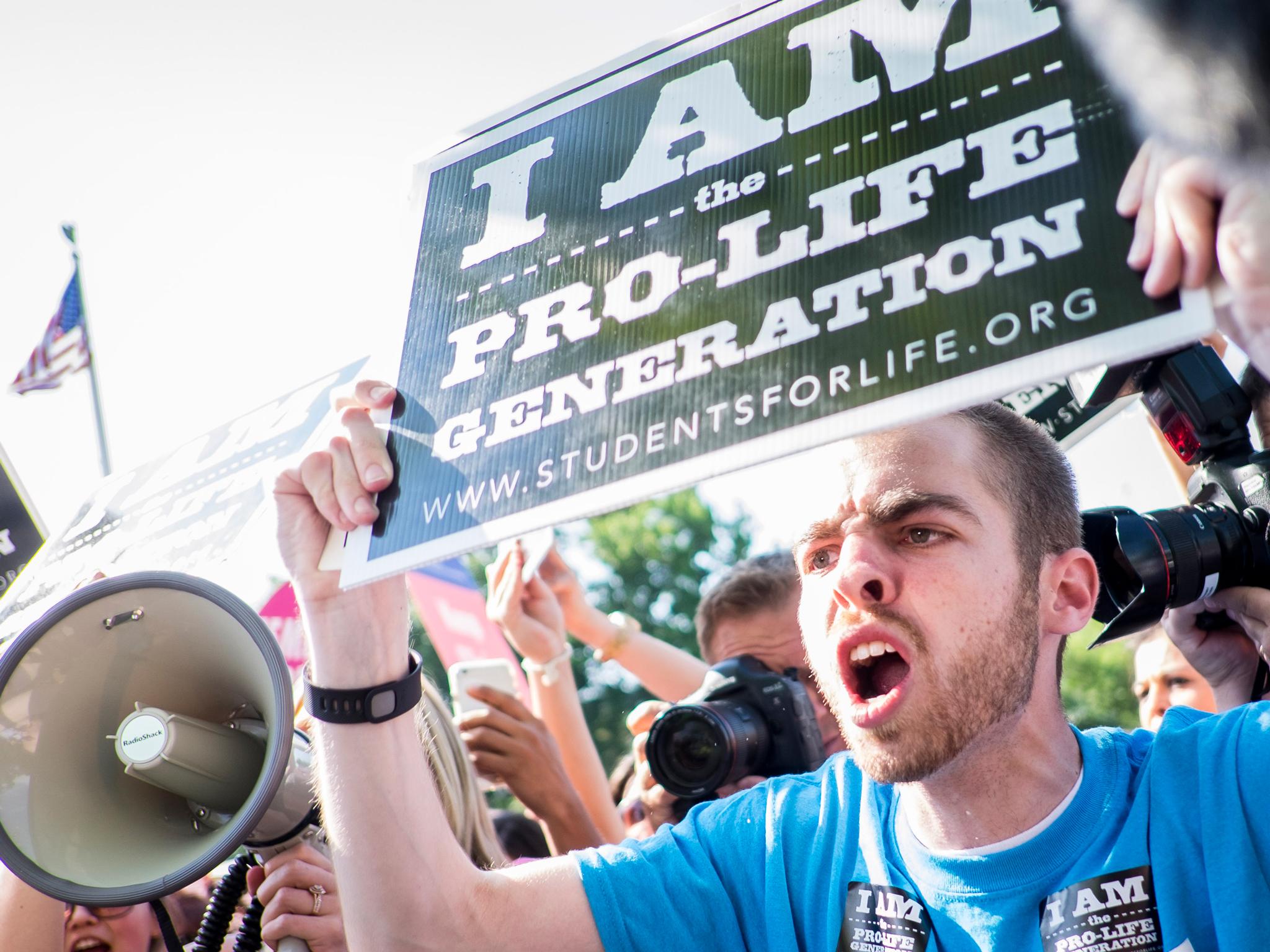Supreme Court ruling: Justices strike down controversial Texas abortion law
Justices ruled in favour of Whole Woman's Health in a 5–3 ruling

In a landmark decision and victory for reproductive rights advocates in the US, the Supreme Court reversed a controversial Texas law in a 5–3 ruling.
Texas lawmakers passed the controversial House Bill 2, which requires doctors performing abortions to be able to admit women patients to a hospital within 30 miles of clinics, in June 2013. Clinics were also required to upgrade to have hospital-like standards.
As a result of the law, 19 of 42 abortion facilities in the state were forced to shutter - particularly affecting women in remote areas of the expansive state. If the Court decided in favour of the state, only about 10 clinics would have remained for the entire state.
Additionally, the law prohibited abortions after 20 weeks of pregnancy. It also requires women to follow FDA regulations when taking the abortion pill, which must be done in the presence of a physician - requiring two visits to the office for each dose of the medication.
"We conclude that neither of these provisions offers medical benefits sufficient to justify the burdens upon access that each imposes," Justice Stephen Breyer wrote in the majority opinon. "Each places a substantial obstacle in the path of women seeking a previability abortion, each constitutes an undue burden on abortion access, ... and each violates the Federal Constitution."
Justice Ruth Bader Ginsburg concurred.
“[I]t is beyond rational belief that HB2 could genuinely protect the health of women,” she wrote, “and certain that the law ‘would simply make it more difficult for them to obtain abortions.’”

Justices Clarence Thomas expressed his disappointment in the ruling in an embittered dissent, expressing that he felt the valued some Constitutional rights over others.
"The Court has simultaneously transformed judicially created rights like the right to abortion into preferred constitutional rights, while disfavoring many of the rights actually enumerated in the Constitution," Mr Thomas said. "A law either infringes a constitutional right, or not; there is no room for the judiciary to invent tolerable degrees of encroachment."
"[T]he entire Nation has lost something essential. The majority’s embrace of a jurisprudence of rights-specific exceptions and balancing tests is 'a regrettable concession of defeat—an acknowledgement that we have passed the point where ‘law,’ properly speaking, has any further application'," he added, invoking Justice Antonin Scalia, who died suddenly in February.
While Mr Thomas would have upheld the provisions, Chief Justice John Roberts and Justice Samuel Alito - both George W Bush appointees - would have sent the case to lower courts for further deliberation.
In Whole Woman’s Health v Hellerstedt, opponents of the law argued that the law presented "undue burden" by presenting significant barriers to women.
"Today, the Supreme Court affirmed what we at Whole Woman’s Health have known all along - that every woman, no matter where she lives, deserves access to compassionate, respectful, and comprehensive care from a clinic she trusts. Today justice was served," said Amy Hagstrom-Miller, president and CEO of Whole Women's Heath.
President and CEO of the Center for Reproductive Rights Nancy Northrup echoed the victorious sentiment, but stressed the historical impact of the Court's decision.
"Without question, today's ruling is a game changer in what has been an unrelenting assault on women's rights across the country," Ms Northrup said. "This tremendous victory renews the promise of Roe v Wade for the next generation. We will not stop fighting until access is restored for all women in the US.“
The decision comes as a major blow for anti-abortion activists and politicans, who argue that the law was intended to protect the health of women - to the contrary of the Court's opinion.
"The decision erodes States’ lawmaking authority to safeguard the health and safety of women and subjects more innocent life to being lost," said Texas Gov Greg Abbott. "Texas' goal is to protect innocent life, while ensuring the highest health and safety standards for women."

Jeanne Mancini, president of the anti-abortion group March for Life, said the law was simply meant to serve "women and babies".
"The Texas law was in the best interest of women’s health," she said in a statement. "Because of the decision today, beauty parlors, veterinarian clinics and public pools will be held to higher sanitary and health standards than abortion clinics.”
For his part, Republican House Speaker Paul Ryan said he will continue the fight to further regulate abortions in the US.
"I'm disappointed in the Court’s decision," he tweeted. "But our fight to protect women’s health & promote life will not stop here."
Presumptive Democratic presidential nominee Hillary Clinton expressed her delight for the Court's ruling in a statement emailed to press. Still, she warned that there was much more work to be done.
"Our fight is far from over. In Texas and across the country, a woman’s constitutional right to make her own health decisions is under attack," she said. "In the first three months of 2016, states introduced more than 400 measures restricting access to abortion. We’ve seen a concerted, persistent attack on women’s health and rights at the federal level."
She pointed out that her Republican opponent, Donald Trump, had vowed to appoint Supreme Court justices who would overturn Roe v Wade - the historic case that legalised abortion in the US - and pledged to defund Planned Parenthood throughout his campaign.
The ruling will come almost three years to the day after former Texas State Sen Wendy Davis embarked on her historical filibuster in an attempt to block the vote on the bill. Ms Davis stood for 11 hours to the roar of thousands of Texas, who showed up to the state capitol to lend their support to the Fort Worth senator.
Filibuster, notwithstanding, then-Gov Rick Perry called for a special session of the state legislature to push the bill through - which he signed into law only weeks after the filibuster.
After the Monday morning ruling, Ms Davis, who lost to Gov Abbott in the recent gubernatorial election, said the ruling finally validated the filibuster.
"Today made that day 3 yrs ago all worth it!" she tweeted. "So grateful to all the women who shared their stories."
Bookmark popover
Removed from bookmarks